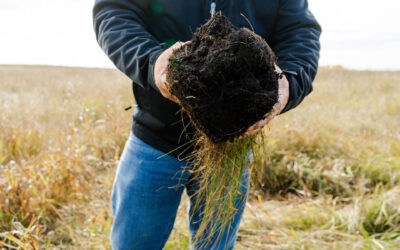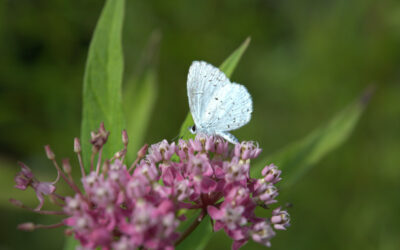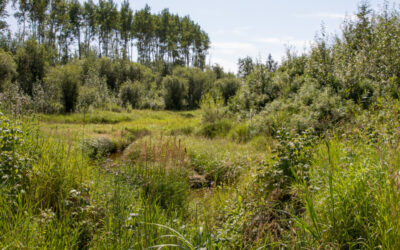ALUS, the Fédération de l’UPA de la Montérégie and the Fédération de l’UPA Outaouais-Laurentide jointly launch valuable online resources to support conservation of species at risk on agricultural lands in Quebec.
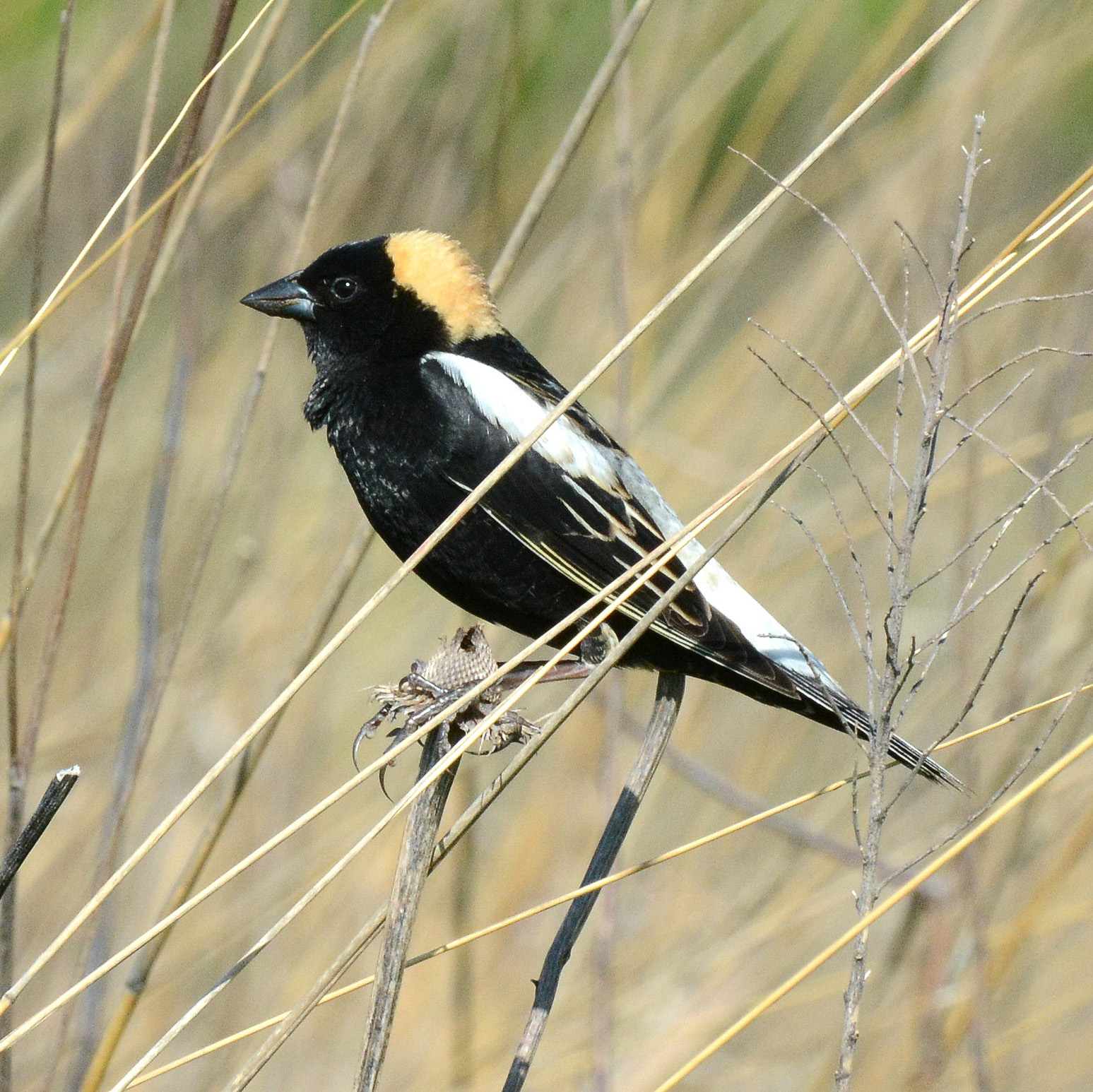
Image of a Bobolink. Allowing native grasses to grow later in the season provides habitat for species at risk and other wildlife.
TORONTO, ON, April 24th, 2024 — ALUS has created communication and outreach tools to promote farming practices that support species at risk in Quebec with the financial support of Environment and Climate Change Canada. ALUS and its partners have created new bilingual resources, including guides and fact sheets on species at risk, a video on delayed hay and an interactive guide, all of which are available on the ALUS website as well as on the websites of UPA regional Federations. These new tools will help agricultural producers and rural communities recognize species at risk in their regions and identify sustainable practices to support those species.
The tools focus on 15 species of special concern in Canada, in Schedule 1 of the Species at Risk Act, specifically those associated with agricultural landscapes like those in the ALUS communities of Montérégie and Outaouais, including grassland birds such as the barn swallow, bobolink and eastern meadowlark, pollinators such as the rusty-patched bumble bee, yellow-banded bumble bee and monarch, and reptiles and amphibians like the western chorus frog, blanding’s turtle, wood turtle and eastern milksnake.
With the new interactive virtual guide and accompanying fact sheets, users can explore different habitats that can typically be found on the agricultural landscape, including woodlands, fields, watercourses, pollinator strips and buildings, as well as 15 different species that can be found in these habitats. Users can learn about the different functions and ecosystem services these species provide, as well as conservation and protection methods, species identification, habitat and diet.
Lastly, in the video produced as part of this project, an ALUS participating farmer shares his story about introducing delayed haying practices on a parcel of land, a practice that supports the Bobolink, a species at risk that nests in fields and grasslands. ALUS and the UPA share a commitment to fostering a sustainable future for agriculture and biodiversity. With support from both regional Federations, ALUS participants are creating vital habitats for key species and helping to address the pressing issue of biodiversity loss. These newly created tools therefore equip farmers and ranchers in Quebec with the knowledge to actively engage in environmental stewardship for species at risk.
By implementing nature-based solutions on the farm, such as creating wide riparian buffer zones, delaying haying, preserving old buildings and restoring nesting habitats, farmers and ranchers in Quebec and beyond can make a meaningful impact for biodiversity.
In turn, biodiversity can benefit farmers in many ways. Some species will consume unwanted vegetation, while others will prey on insects and other species that are a nuisance to crops. Restoration projects implemented by farmers and ranchers involved in ALUS can play a vital role in supporting pollinators, essential to most farming operations. Understanding and being able to identify various species at risk can be beneficial to farmers and can help communities identify healthy ecosystems. Species at Risk need protection to avoid population decline and ultimately species extinction. Working collaboratively to protect species, habitats and the greater landscape that supports them ensures that these species will be around for generations to come.
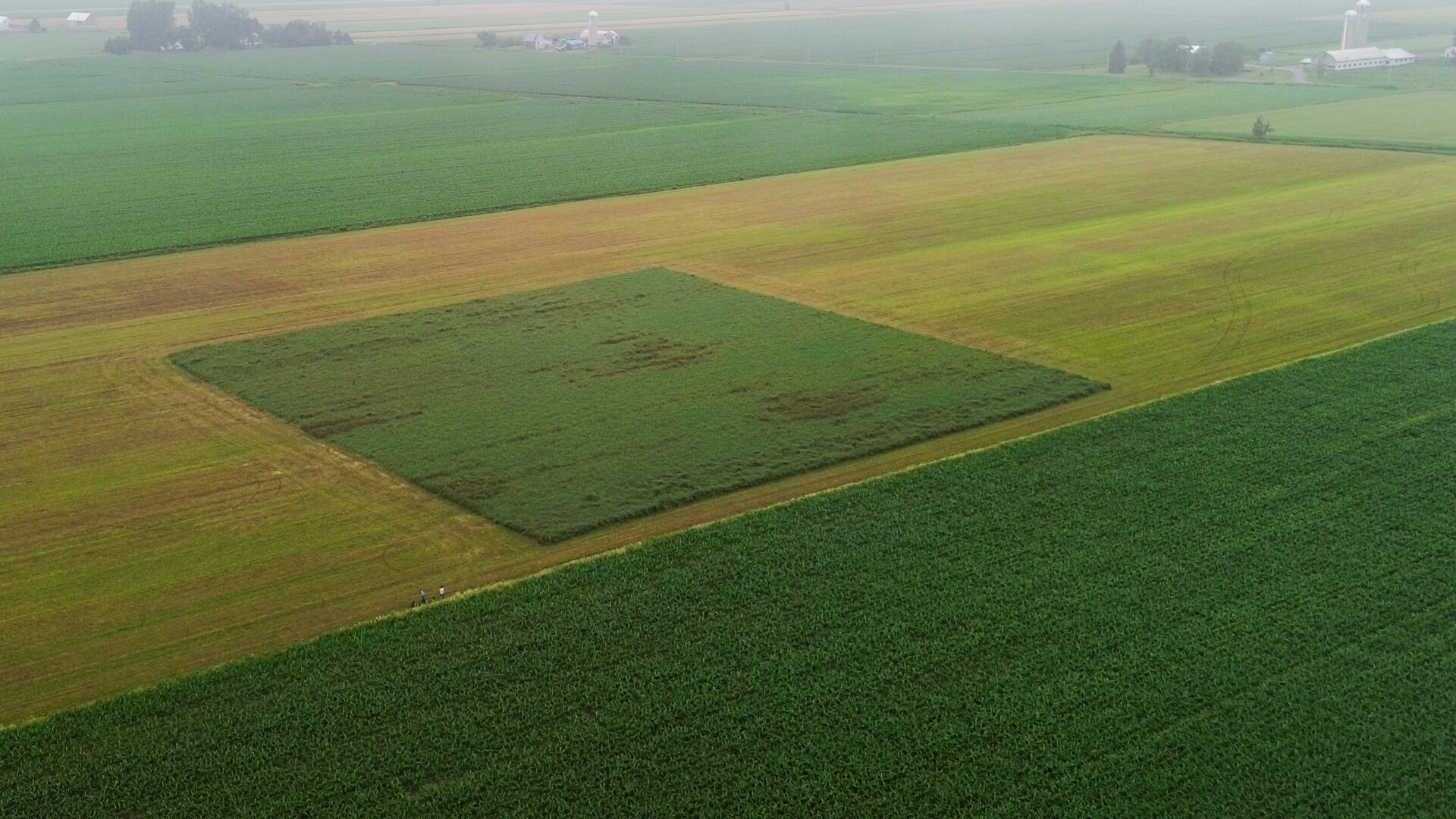
Delayed haying project undertaken in ALUS Montérégie.
In turn, biodiversity can benefit farmers in many ways. Some species will consume unwanted vegetation, while others will prey on insects and other species that are a nuisance to crops. Restoration projects implemented by farmers and ranchers involved in ALUS can play a vital role in supporting pollinators, essential to most farming operations. Understanding and being able to identify various species at risk can be beneficial to farmers and can help communities identify healthy ecosystems. Species at Risk need protection to avoid population decline and ultimately species extinction. Working collaboratively to protect species, habitats and the greater landscape that supports them ensures that these species will be around for generations to come.
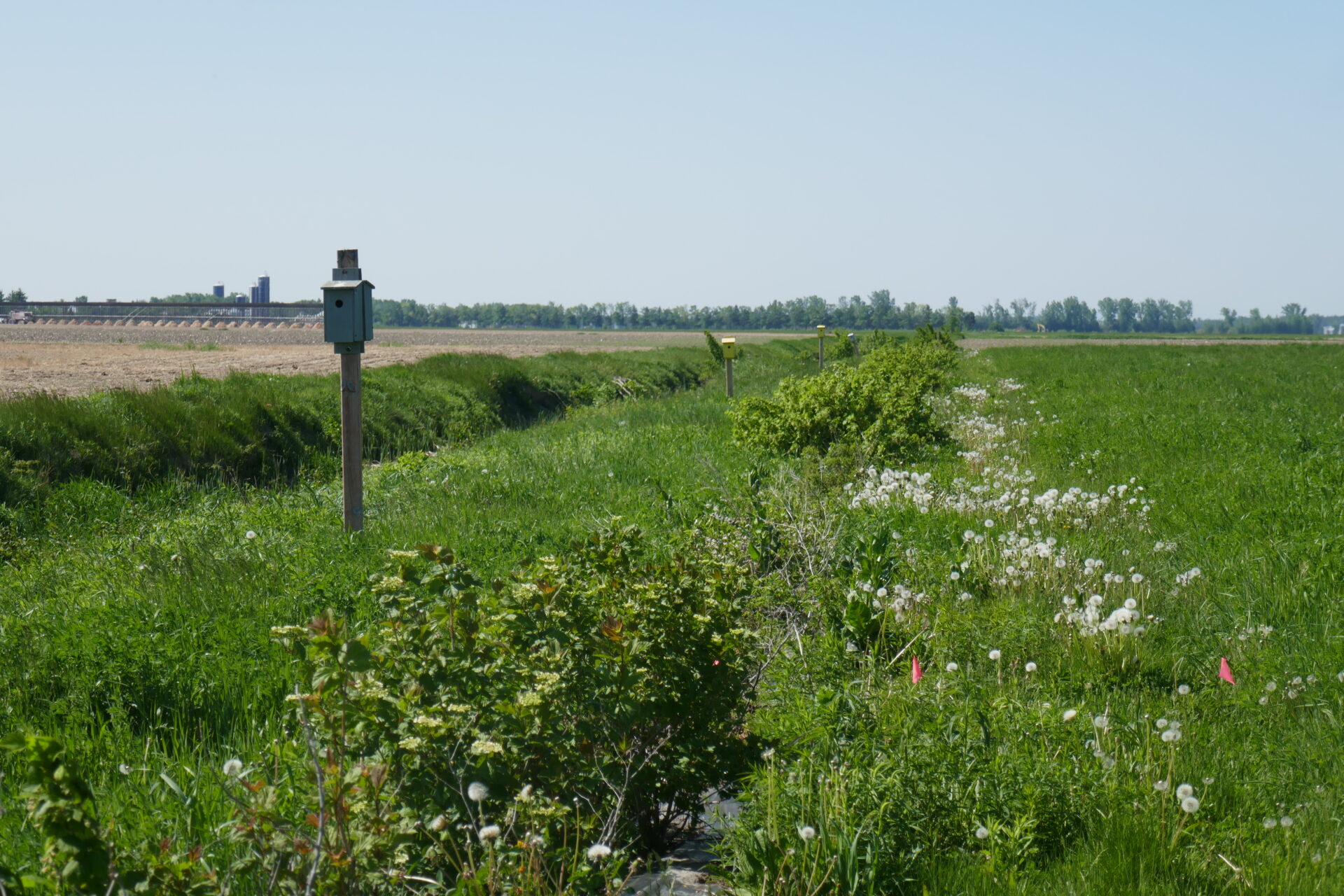
Riparian buffer project undertaken in ALUS Montérégie.
About ALUS
ALUS is a charitable organization that envisions a future where all farmers and ranchers produce ecosystem services from nature-based solutions alongside food and fibre to help solve the crises of biodiversity loss and climate change. Through its turn-key farmer-led, community-delivered program, ALUS supports more than 330 community leaders across 38 ALUS communities in helping over 1,600 farmers and ranchers build and actively manage 46,000+ acres of nature-based projects. These projects, like wetlands, grasslands and tree and shrub plantings, help capture carbon, keep lakes, rivers and streams clean, provide food and shelter for wildlife, and better prepare communities for extreme weather events like flood and drought.
ALUS also helps governments, businesses and philanthropic foundations invest in Nature & Climate Solutions on agricultural land to generate positive environmental, economic and social outcomes in the communities where they operate—one acre at a time.

